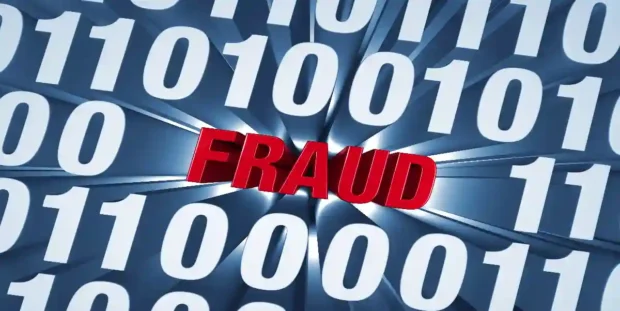Introduction to the Elevance Health Class Action Lawsuit
The Elevance Health Class Action Lawsuit has started to get a lot of attention. Elevance Health’s stock price has taken a massive hit, dropping by nearly 17% in two major falls. The company’s shares fell by $32.21 (about 6%) on July 17, 2024. A steeper decline followed on October 17, 2024, when the stock dropped $52.61 (almost 11%) after missing earnings expectations by a lot – 13.7%.

The Elevance Health Class Action Lawsuit focuses on how the company allegedly misrepresented its handling of Medicaid redetermination costs. The case was filed in the U.S. District Court for the Southern District of Indiana. Any investor who bought common stock between April 18, 2024, and October 16, 2024, could join this legal action. Investors should know they have until July 11, 2025, to apply for lead plaintiff status.
The case “Miller v. Elevance Health, Inc.” claims the company hid crucial information from investors. The biggest problem revolves around how Medicaid redetermination affected their member base. When healthier members left the program, the remaining members needed more extensive and costly care. The company allegedly kept this information hidden while providing financial guidance for 2024.
If you suffered substantial losses and wish to serve as lead plaintiff of the Elevance Health Lawsuit, or just have general questions about you rights as a shareholder, please contact attorney Timothy L. Miles of the Law Offices of Timothy L. Miles, at no cost, by calling 855/846-6529 or via e-mail at tmiles@timmileslaw.com.
Elevance Lawsuit Alleges Company Misled Investors
The Elevance Health securities fraud lawsuit was filed in the U.S. District Court for the Southern District of Indiana. The Elevance Health Lawsuit charges the healthcare giant and its top executives with violating the Securities Exchange Act of 1934. The case, Miller v. Elevance Health, Inc., No. 25-cv-00923, represents investors who bought company shares between April 18, 2024, and October 16, 2024.
 The lawsuit’s central claim states that Elevance Health made false statements about financial risks connected to changes in Medicaid member health conditions. The company repeatedly assured investors that premium rates negotiated with states would properly cover the changing risk profiles of Medicaid patients, even though they knew this wasn’t true.
The lawsuit’s central claim states that Elevance Health made false statements about financial risks connected to changes in Medicaid member health conditions. The company repeatedly assured investors that premium rates negotiated with states would properly cover the changing risk profiles of Medicaid patients, even though they knew this wasn’t true.

A key problem emerged after states restarted Medicaid eligibility checks following the COVID pause. Healthier beneficiaries left the programs while those needing more medical care stayed. This created a group that needed more expensive care—a fact allegedly kept out of financial forecasts.
The company claimed it could line up 75% of Medicaid rates with expected cost effects. Yet they knew the eligibility review process was creating a member base that needed substantially more medical care.
Elevance kept telling investors throughout 2024 that they had Medicaid costs under control. The truth came out during their July 2024 earnings call when they revealed “increased acuity” among Medicaid members.
The company had to admit they saw higher usage rates in several service areas:
- Outpatient home health
- Radiology services
- Durable medical equipment
- Various elective procedures
Things got worse when Elevance missed earnings expectations by $1.33 per share (13.7%) in October 2024. This forced them to cut yearly earnings guidance by 11.3% from $37.20 to $33.00. These revelations ended up confirming what plaintiffs say the company knew from the start—healthier Medicaid members were leaving while sicker, more expensive patients stayed.
Stock Price Drops After Key Disclosures
Elevance Health stockholders saw their investments take two big hits in 2024 when the company revealed mounting Medicaid costs.
The first blow came on July 17, 2024. The stock dropped $32.21, almost 6%, after Elevance announced it was “expecting second-half utilization to increase in Medicaid”. The price fell from $553.14 to $520.93. Company leaders admitted they were “seeing signs of increased utilization across the broader Medicaid population, including in outpatient home health, radiology, durable medical equipment as well as some elective procedures”.
The second hit struck harder on October 17 with the third-quarter results announcement. The company missed analyst expectations for earnings per share by $1.33 (13.7%) “due to elevated medical costs in [its] Medicaid business”. The news sent the stock tumbling $52.61 per share (10.6%), from $496.96 to $444.35.

The October announcement brought more bad news. Elevance slashed its 2024 earnings forecast from $37.20 to $33.00 per share, an 11.3% cut. CEO Gail Boudreaux summed up the situation: “We have not had an environment like this before in Medicaid”.
The company’s stock had reached its peak at $567.26 in early September 2024. These two announcements wiped out roughly 30% of Elevance’s market value. Investors grew worried about the “timing mismatch” between state payment rates and the changing Medicaid member profile.
These market losses highlight the financial consequences of what the Elevance Health class action lawsuit claims was a failure to disclose known risks properly. The redetermination process led healthier people to leave Medicaid programs. The remaining members needed more expensive care, creating cost pressures that the company could no longer hide from investors.
Investors Face Deadline to Join Class Action
The deadline approaches quickly for investors affected by Elevance Health’s alleged misrepresentations to protect their legal rights. July 11, 2025 stands as a vital deadline for shareholders seeking appointment as lead plaintiff in the Elevance Health class action lawsuit. This date marks the first business day after the 60-day notice of pendency publication period.
Investors qualify for potential compensation if they purchased or acquired Elevance common stock between April 18, 2024, and October 16, 2024. Those who suffered financial losses during this period automatically become class members, whatever their decision about pursuing lead plaintiff status.

The lead plaintiff’s role carries most important responsibilities, as this representative guides the litigation for all class members. Courts usually pick the investor with the largest financial stake who meets typicality and adequacy requirements. All the same, investors can share in any potential recovery without serving as lead plaintiff.
Shareholders may also stay passive class members without taking immediate action. You can benefit from any potential settlement or judgment without becoming lead plaintiff.
The Private Securities Litigation Reform Act of 1995 creates the foundation for this process and allows any qualified investor to seek appointment. Qualified domestic and international investors can apply. The lead plaintiff’s chosen law firm can litigate the case after court approval.
Affected investors should think over their options and talk to securities attorneys about their specific situation before the deadline ends.
Conclusion
The Elevance Health lawsuit poses a major legal challenge for one of America’s biggest healthcare insurers. Our investigation revealed the company allegedly hid most important information about Medicaid redetermination effects. This led to two big stock drops that wiped out almost 17% of shareholder value.
The company’s biggest problem came from a basic business mistake. The healthier Medicaid members dropped out while those needing expensive care stayed. This created financial strain that the company knew about but didn’t tell anyone. The executives claimed they would arrange 75% of Medicaid rates with expected costs. Yet evidence shows they knew the redetermination process was creating money problems they couldn’t handle.
Investors should note the July 11, 2025 deadline to become lead plaintiff. Being lead plaintiff is optional, and anyone who bought Elevance shares during this time automatically becomes a class member. Talking to securities attorneys is a great way to get clarity about your options.
The stock market’s response tells the real story. Elevance’s stock dropped $32.21 after July’s news came out. An even bigger fall of $52.61 happened in October when executives admitted they “have not had an environment like this before in Medicaid.” Without doubt, these statements went against their earlier claims about managing costs well.
This case explains why companies must be honest. Whatever happens with this lawsuit, it shows that public companies need to be upfront about serious risks. The collateral damage from Elevance’s situation has hurt everyone involved financially.
Frequently Asked Questions About the Elevance Health lawsuit
Q1. What triggered the Elevance Health lawsuit ? The lawsuit was triggered by allegations that Elevance Health misled investors about the financial risks associated with Medicaid redetermination, leading to significant stock price drops in July and October 2024.
Q2. Who is eligible to join the Elevance Health class action lawsuit? Investors who purchased Elevance Health common stock between April 18, 2024, and October 16, 2024, and suffered financial losses are eligible to join the class action lawsuit.
Q3. What is the deadline for investors to seek lead plaintiff status? The deadline for investors to seek appointment as lead plaintiff in the Elevance Health class action lawsuit is July 11, 2025.
Q4. How did Elevance Health’s stock price react to the company’s disclosures? Elevance Health’s stock price dropped by approximately 6% on July 17, 2024, and another 10.6% on October 17, 2024, following disclosures about increased Medicaid utilization and missed earnings expectations.
Q5. What are the main allegations in the Elevance Health lawsuit ? The lawsuit alleges that Elevance Health failed to disclose how the Medicaid redetermination process significantly increased both acuity and utilization among its Medicaid members, leading to higher costs and financial losses for investors.
Contact Timothy L. Miles Today About an Elevance Health Class Action Lawsuit
If you suffered losses in Elevance Health stock, call us today for a free case evaluation about an Elevance Health Class Action Lawsuit. 855-846-6529 or tmiles@timmileslaw.com (24/7/365).
Timothy L. Miles, Esq.
Law Offices of Timothy L. Miles
Tapestry at Brentwood Town Center
300 Centerview Dr. #247
Mailbox #1091
Brentwood,TN 37027
Phone: (855) Tim-MLaw (855-846-6529)
Email: tmiles@timmileslaw.com
Website: www.classactionlawyertn.com
Facebook Linkedin Pinterest youtube






